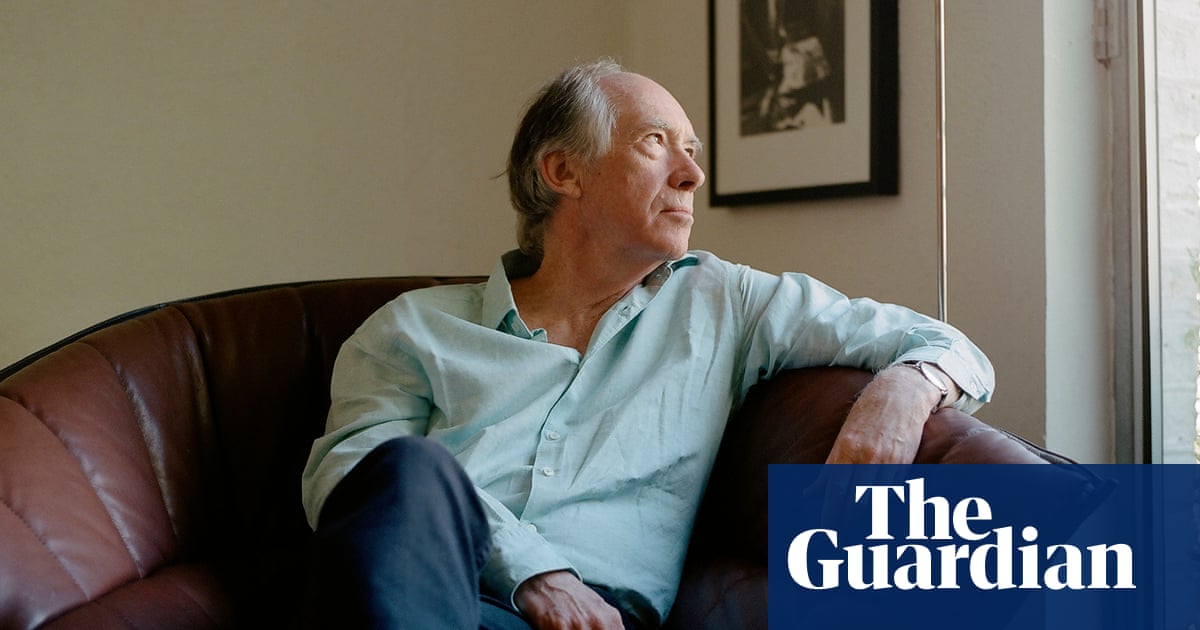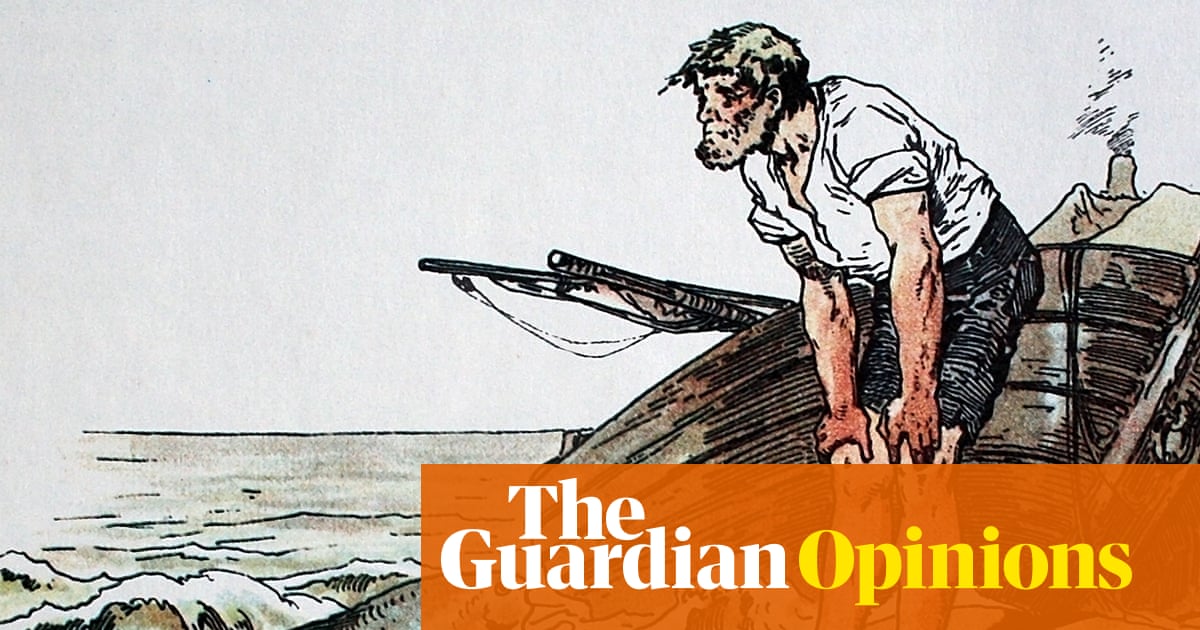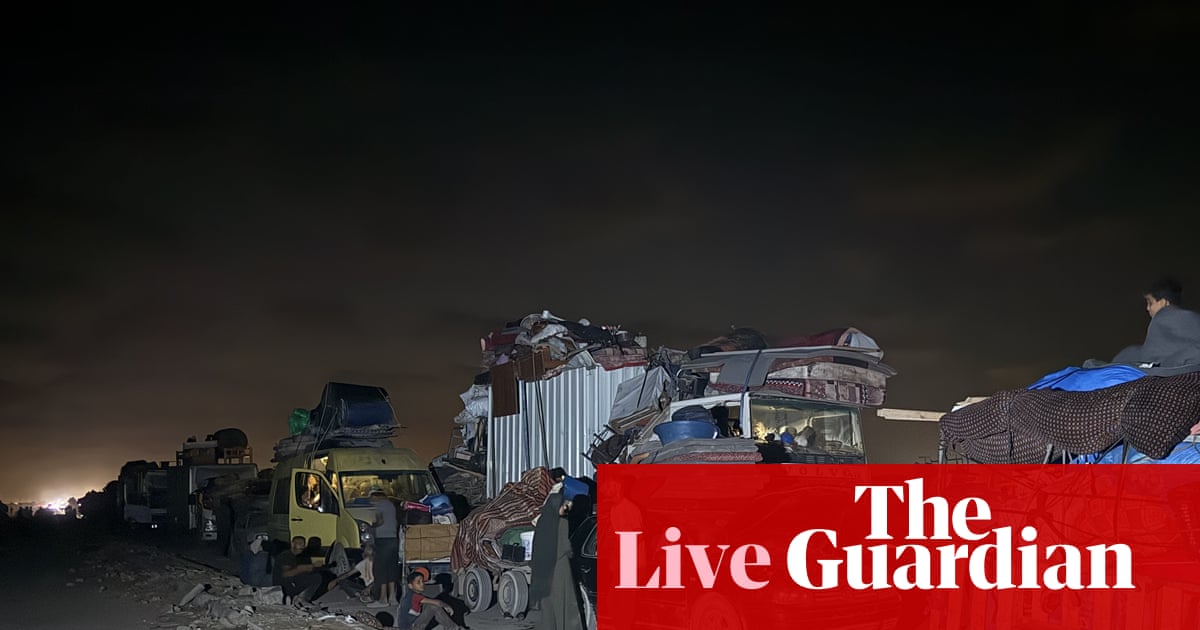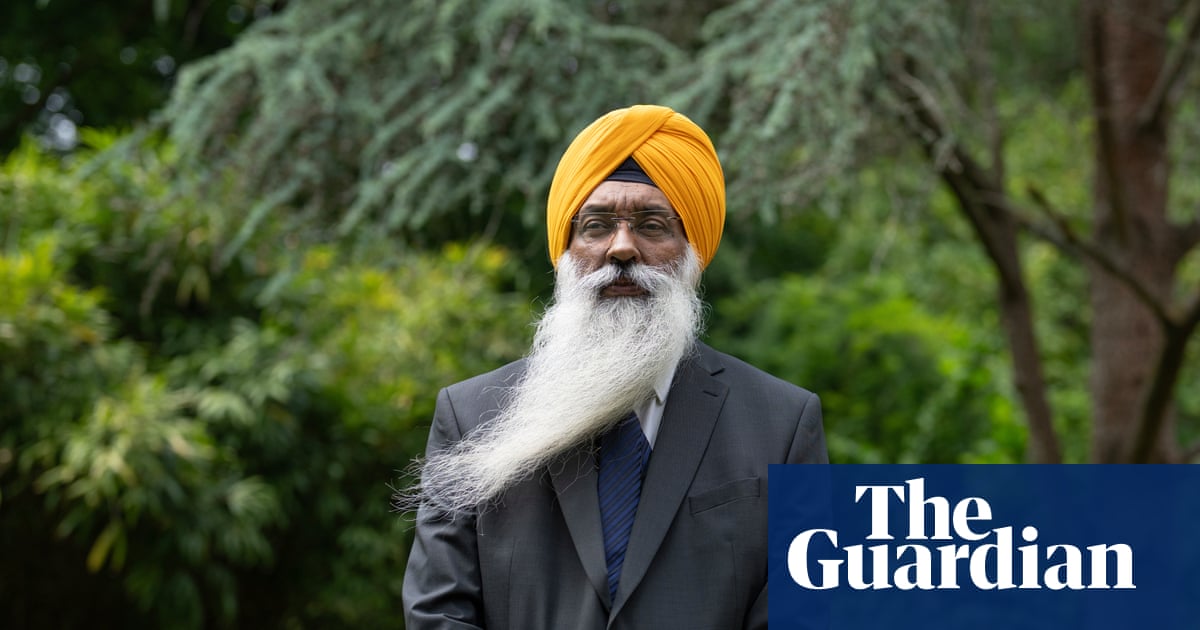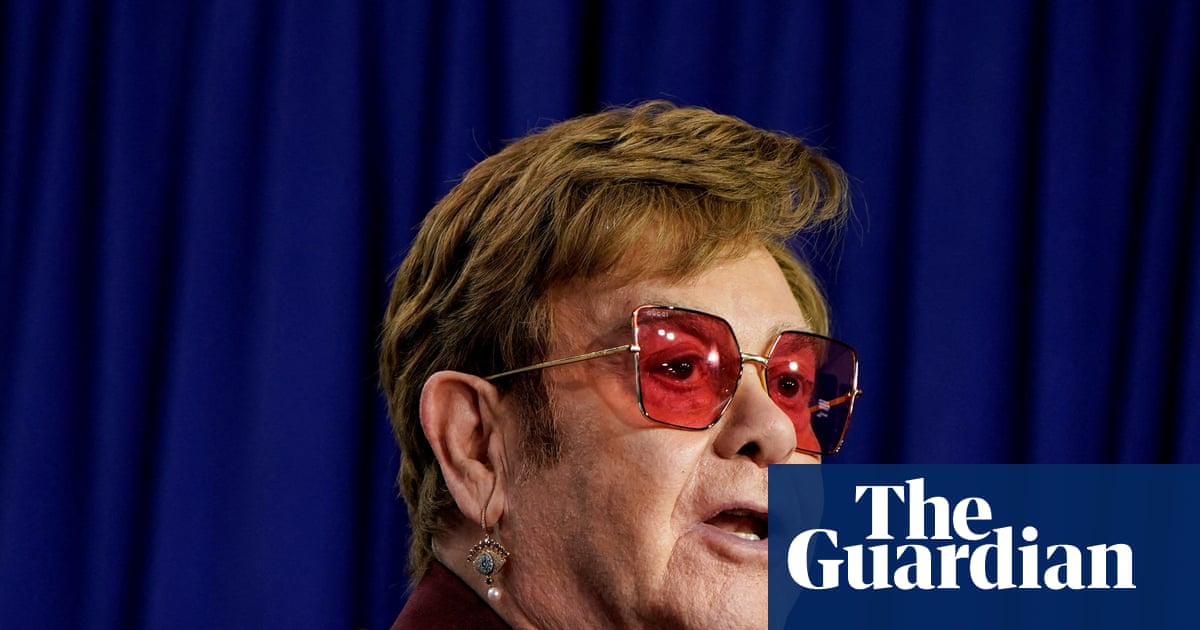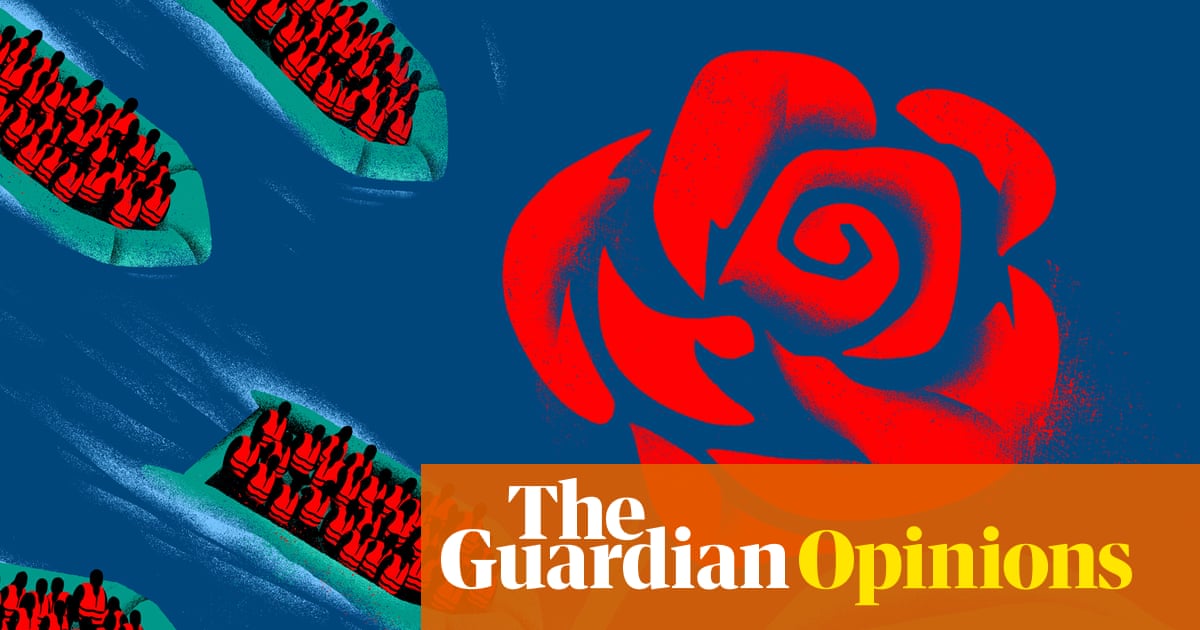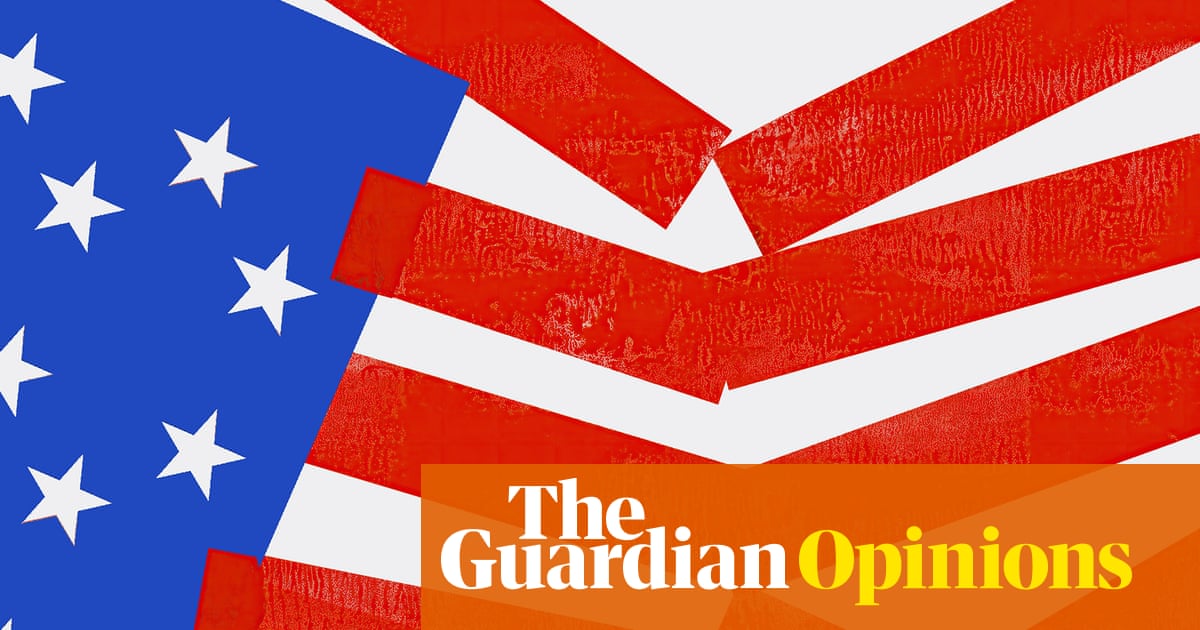The anger inside the Foreign Office over Israel’s blockade of aid into Gaza had been slowly building until – like an exploding pressure cooker – the foreign secretary, David Lammy, let loose his most damning criticism of Israeli since the Gaza conflict started in 2023.
Lammy’s innate ability to put the rhetorical burners on issues has had to be restrained as the UK’s leading diplomat, but once he entered the Commons chamber to condemn Israel’s blockade of aid, this was Lammy unleashed.
One UK diplomat formerly based in the Middle East said: “The language was carefully chosen and it was quite simply unprecedented. It marks a turning point.” Even if Lammy’s rhetoric and his actions did not match, sometimes language matters in diplomacy. The use of words such as “extremist” and “abhorrent” to describe the actions of a longstanding ally ricocheted across the global media landscape.
The explanation for Lammy’s suspension of free trade talks at one level is self-evident. The accumulation of pictures of emaciated children, the threats to “purify” Gaza by some Israeli ministers and the apparent inability of the Americans to persuade Israel to accept that a permanent ceasefire was a legitimate price for the release of the Israeli hostages became too much.

Photograph: Haitham Imad/EPA
But frustration had been mounting ever since Gideon Sa’ar, the Israeli foreign minister, met Lammy on what was intended to be an unpublicised visit on 16 April. The main subject of the meeting, described as private by the Foreign Office, focused entirely on matters of state and specifically the Israeli blockade on humanitarian aid in Gaza that had started on 2 March, more than six weeks before.
Lammy had condemned the blockade from the start and at one point on 17 March in the Commons described it as a breach of humanitarian law, a judgment he had to retract since government policy is that only international courts and not the UK government make judgments on breaches of international law. Regardless of the precise legal status of Israel’s blockade, Lammy described it as “unacceptable, hugely alarming and very worrying”.
But the meeting with Sa’ar did not go well. Asked by the Telegraph to characterise its tone, Sa’ar said: “You always gain something by making your arguments and intentions clearer.” He insisted the denial of aid was not a form of collective punishment or unlawful.
At the same time, UK concern had been mounting about shadowy plans for the Gaza Humanitarian Foundation that was due to start aid operations at the end of May. The GHF was to be overseen by Jake Wood, a US military veteran who ran Team Rubicon, an organisation that distributed humanitarian aid during natural disasters.
In essence, the organisation would replace the now-banned UN human rights agency, Unrwa, as well as Ocha (Office for the Coordination of Humanitarian Affairs), the UN’s main humanitarian body.
Since November, Ocha has been led by Tom Fletcher, a former chief foreign policy adviser to Tony Blair, Gordon Brown and David Cameron. All three of them came to rely upon him, but he later retreated to academia to be principal of Hertford College, Oxford. Lammy lured him back into public service, persuading him to apply for the job of chief of Ocha – for historical reasons a job that has largely been a British sinecure.

Fletcher’s first few months in the job from November had been attempting to limit the impact of US aid cuts, but he soon realised that Israel’s blockade of aid and plans for the GHF were part of an attempt to remove all trace of the UN from Gaza.
He formally sounded the alarm in a speech on 13 May to the UN security council, most remembered for his call for decisive action to “prevent a genocide” and a warning to members to ask themselves how they would account to future generations when asked if they truly did all they could to stop Israel’s “unashamed inhumanity”. In a chamber numbed by empty rhetoric about neglected horror, he managed to elevate the question to a matter of personal responsibility.
But he also spelled out the implications of the GHF for Palestinians and the humanitarian community, including the plan to kettle Palestinians in one part of Gaza, seen as a prelude to either voluntary or involuntary deportation.
He said the GHF plan “restricts aid to only one part of Gaza while leaving other dire needs unmet. It makes aid conditional on political and military aims. It makes starvation a bargaining chip. It is a cynical sideshow. A deliberate distraction. A fig leaf for further violence and displacement.”
after newsletter promotion
Fletcher followed up his words by rallying diplomats, including the Americans, to acknowledge a catastrophe had to be prevented. The US issued an amber light for the UK to go harder on Israel to end the blockade.
At the same time, the UK had already been alerted by the Dutch foreign minister, Caspar Veldkamp, on a visit to London on 6 May that the EU would be reviewing its trade relationship with Israel, reflecting a change in mood inside his own government, and potentially Europe.
At the start of the week, the diplomacy bore fruit. A British-engineered ring-round led on Monday to a joint statement by 27 donors, mainly western countries, endorsing Fletcher’s concern about the GHF.
“Humanitarian aid should never be politicised, and Palestinian territory must not be reduced nor subjected to any demographic change,” the 27 said. Despite the limited restart of aid announced by Benjamin Netanyahu, the donors still warned: “Palestinians faced starvation”.
Hours later, the Canadian prime minister, Mark Carney, the UK prime minister, Keir Starmer, and the French president, Emmanuel Macron, also intervened again using unprecedented language.
“If Israel does not cease the renewed military offensive and lift its restrictions on humanitarian aid, we will take further concrete actions in response,” a joint statement read. Significantly, the statement made reference to a UN-sponsored conference in June, chaired by France and Saudi Arabia, on a two-state solution.
The UK, France and Canada are all members of the G7 group of western countries, due to meet at a G7 leaders’ summit on 15-17 June, the day before Saudi Arabia and France chair a three-day UN summit in New York to advance a two-state solution.
Macron has already said that the New York summit may be the moment for a consortium of countries to recognise Palestine as a state. It is possible there could be an interplay between the two summits.
The French have launched such recognition initiatives in the past, only to pull back, and inside the Foreign Office there is a belief that recognition, a symbolic card that can be played only once, has to be played at a point of maximum impact.
But the French foreign minister, Jean-Noël Barrot, said this week: “We are determined to recognise the state of Palestine”. Self-evidently, the more Israel occupies Gaza and extends settlements on the West Bank, the less likely there will be any Palestinian state left to recognise.

 3 months ago
91
3 months ago
91


